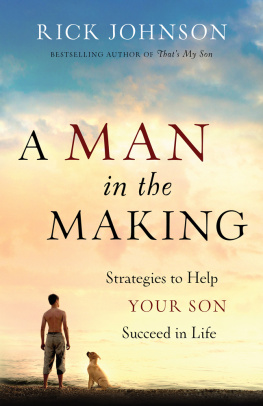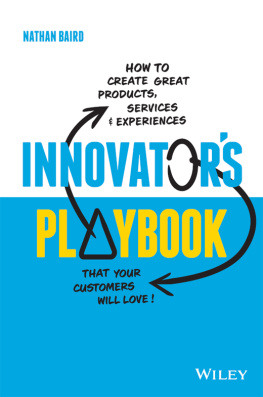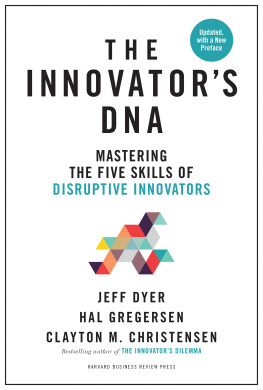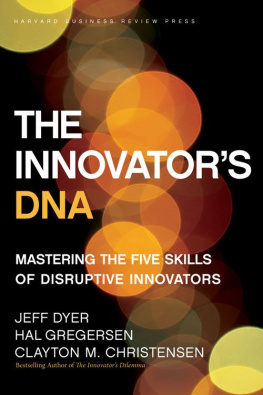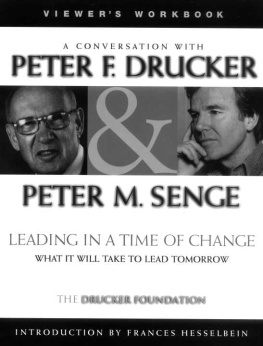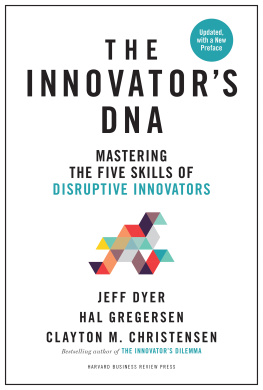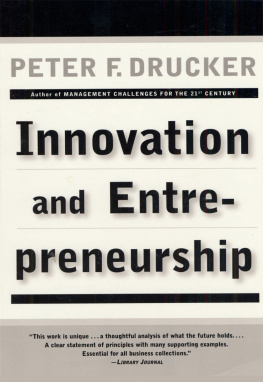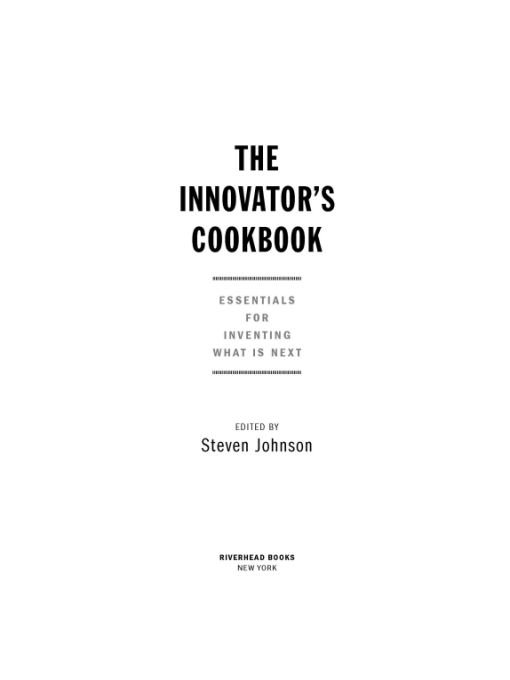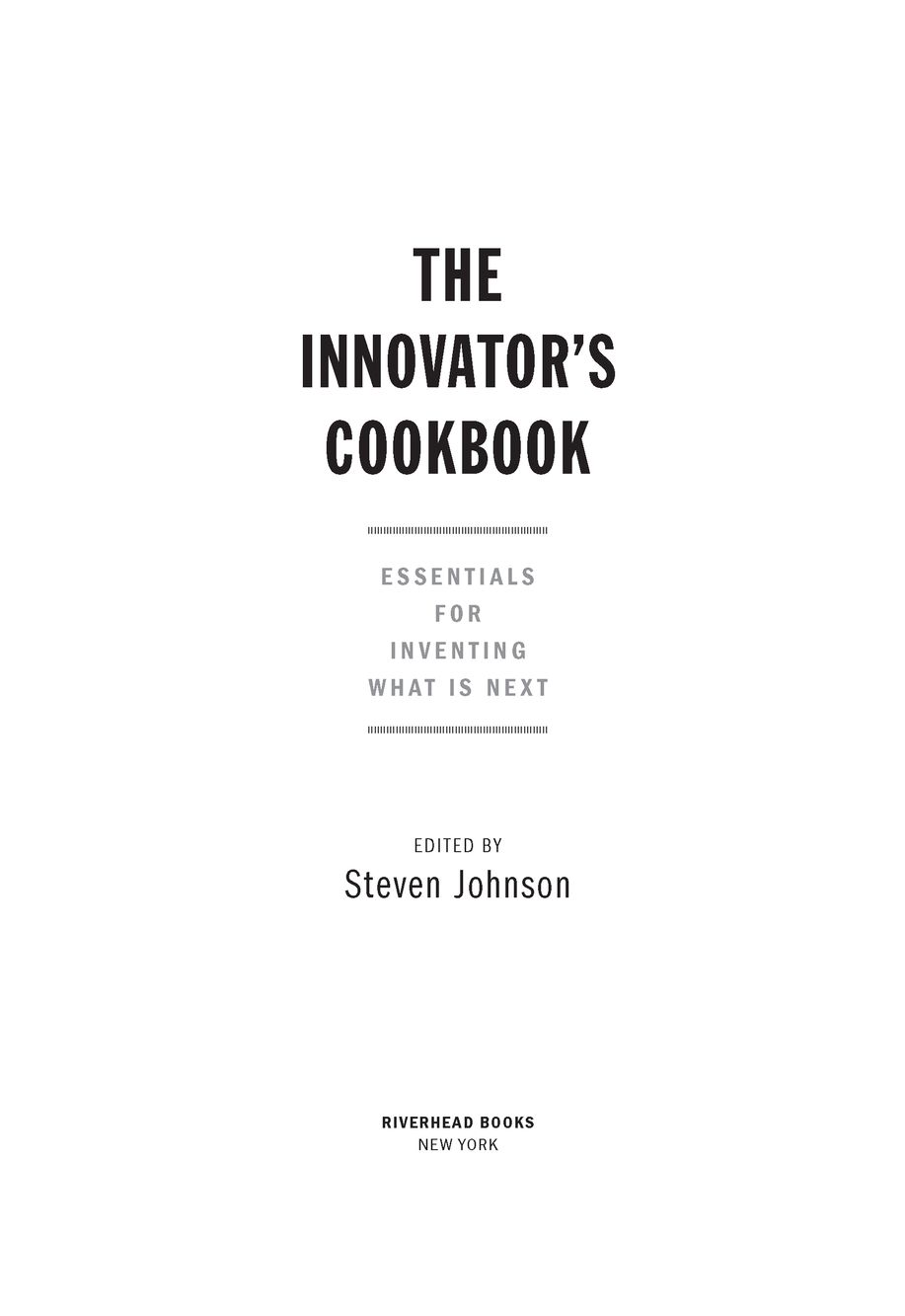Table of Contents
Also by Steven Johnson
Interface Culture: How New Technology Transforms the Way We Create and Communicate
Emergence: The Connected Lives of Ants, Brains, Cities, and Software
Mind Wide Open: Your Brain and the Neuroscience of Everyday Life
Everything Bad Is Good for You: How Todays Popular Culture Is Actually Making Us Smarter
The Ghost Map: The Story of Londons Most Terrifying Epidemicand How It Changed Science, Cities, and the Modern World
The Invention of Air: A Story of Science, Faith, Revolution, and the Birth of America
Where Good Ideas Come From
INTRODUCTION
The first step in winning the future is encouraging
American innovation.
BARACK OBAMA, STATE OF THE UNION ADDRESS, JANUARY 20II
I first began working explicitly on the problem of innovation in the summer of 2006, when I started writing a book about new ideas and the environments that encouraged them. But it wasnt until I finished that book that I realized I had been wrestling with innovation, in one way or another, for almost two decades. The first articles I published in my twenties as an easily distracted English-lit grad student gravitated toward the digital revolutions coming out of Silicon Valley; all my books since then have focused on new ideas and their transformative powerinnovations in science or tech or politics or entertainment, some of them recent headlines and some ancient history.
That long history with the topic may help explain why I assumed almost by default, as I was writing the innovation book, that there was nothing particularly timely about the subject matter, nothing distinct to the zeitgeist of postmillennial culture. Sure, we routinely lavish praise on and pen hagiographies about entrepreneurs like Steve Jobs and Mark Zuckerberg, but we did the same for Thomas Edison and Ben Franklin before them. I had written books that I consciously thought of as zeitgeist-y as I was working on them. Innovation wasnt like that. This was, in fact, one of the things I found refreshing about the topic. Innovation wasnt trendy; it was evergreen.
But then something seemed to happen, as the world economy began to climb its way out of the Great Crunch of 2008 to 2009, and we began to probe through the rubble looking for clues to explain what had brought on such a colossal failure, clues that might also, we hoped, suggest ways to avoid similar failures in the future. After a decade of financial pseudo innovationthe creditdefault swaps and collateralized debt obligations that inflated the housing bubble and nearly brought down the world economy when that bubble inevitably burstit seemed suddenly, viscerally clear that economic growth needed to come from making useful things again, whether those things were electric cars or digital code, and not just creating illusory value out of complex derivative schemes.
I saw this firsthand in the United States, and to a lesser extent in the UK, but I suspect the pattern extends throughout the world. By the time I had finished the final draft of my book
, innovation seemed to be on everyones lips: public school superintendents, venture capitalists, clean-energy entrepreneurs, op-ed writers. And so when President Obama delivered his State of the Union address in January of 2011, it was not terribly surprising to see him devote nearly a third of the speech to innovation-related initiatives. The speech is worth quoting from in some length, because the way that he frames the issue tells us something important about why innovation seems so central to us today:
The first step in winning the future is encouraging American innovation. None of us can predict with certainty what the next big industry will be or where the new jobs will come from. Thirty years ago, we couldnt know that something called the Internet would lead to an economic revolution. What we can dowhat America does better than anyone elseis spark the creativity and imagination of our people. Were the nation that put cars in driveways and computers in offices; the nation of Edison and the Wright brothers; of Google and Facebook. In America, innovation doesnt just change our lives. It is how we make our living.
Our free-enterprise system is what drives innovation. But because its not always profitable for companies to invest in basic research, throughout our history, our government has provided cutting-edge scientists and inventors with the support that they need. Thats what planted the seeds for the Internet. Thats what helped make possible things like computer chips and GPS. Just think of all the good jobsfrom manufacturing to retailthat have come from these breakthroughs.
Half a century ago, when the Soviets beat us into space with the launch of a satellite called Sputnik, we had no idea how we would beat them to the moon. The science wasnt even there yet. NASA didnt exist. But after investing in better research and education, we didnt just surpass the Soviets; we unleashed a wave of innovation that created new industries and millions of new jobs.
This is our generations Sputnik moment. Two years ago, I said that we needed to reach a level of research and development we havent seen since the height of the Space Race. And in a few weeks, I will be sending a budget to Congress that helps us meet that goal. Well invest in biomedical research, information technology, and especially clean energy technologyan investment that will strengthen our security, protect our planet, and create countless new jobs for our people.
As Obama suggests, the social impact of innovation has a long history to it, one that, it should be said, is hardly as America-centric as Obama implies: think of the British steam engines that powered the first wave of the industrial revolution in the eighteenth century, or the inventions in algebra and double-entry accounting during the Islamic golden age more than a thousand years ago. The history of human progress, worldwide, is the history of new ideas put to wonderful new use.
But the State of the Union address also shed light on what makes our present attitude toward innovation different, in two fundamental ways. The first is this distinct assumption that innovation canand shouldbe cultivated; that it wasnt just something that would magically emerge on its own from the folkloric Entrepreneurial American Spirit. Innovation could be taught, encouraged, supportedor suppressedthanks to decisions that we made as a society. It wasnt enough just to lower the capital gains tax and let the entrepreneurs and venture capitalists go wild; innovation required more subtle interventions for it to truly flourish.
The presidents interest in nurturing innovation has its roots in a growing body of research that has accumulated over the past twenty years, some of it written by economists and legal scholars who would become part of Obamas inner circle. For most of the twentieth century, innovation lived at the margins of most economics scholarship. Thousands of books were written on the efficiency of markets, and the conditions under which governments might correct capitalisms turbulence or inequities; elaborate mathematical models were built to explain the miracles of price signaling. But the seemingly equally important question of how societies came up with new products in the first place went largely unexamined. Intriguingly, some of the most astute analyses of innovation came from open critics of capitalism: starting with Marxs famous observation that market-driven economies created a culture of permanent change, where all that is solid melts into air. Later, the Austrian socialist Joseph Schumpeter chronicled capitalisms relentless drive for creative destructionpopularizing a phrase that would eventually be embraced by titans of industry and business school seminars, losing its original negative connotations in the process.




